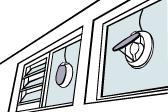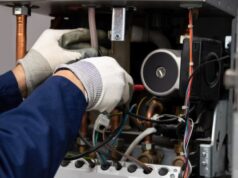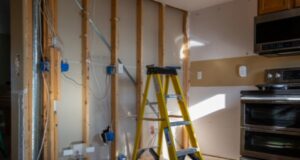
The size and speed of an exhaust fan can have an impact on its performance, but to choose a fan you also need to consider what it’s going to be used for.
To ensure that you are achieving the right amount of ventilation in your home, you need to make sure that you choose an exhaust fan that is big enough for the task at hand.

Where you decide to install an exhaust fan – bathroom, laundry or kitchen – will have a direct influence on the size and speed of the unit you need – as will the types of fittings and appliances in use. Different locations have different requirements in terms of air changes per hour. For example, it is recommended that you use a unit with between 6 and 20 changes per hour in a bathroom, depending on whether or not the bathroom has a shower in it. Most kitchens require around 15 changes per hour.
What size exhaust fan do I need?
Size matters, but how fast you go is just as important! How effective a fan is depends on how much air it can move in a given amount of time. Fan capacity is commonly measured in cubic metres per minute (m3/min), but is also referred to in terms of cubic feet per minute (CFM) and litres per second(l/s). Larger fans, because of their larger surface area, can move more air than smaller fans running at the same speed.
To figure out how big a fan you need, first and foremost you should figure out the size of the room you wish to ventilate. In very general terms, for every 4.5 square metres of floor area you need to be able to move one cubic metre per minute. This, however, does not take into account any of the fittings that you have installed; every bath, shower and toilet requires an additional two to three cubic metres per minute of ventilation. In a kitchen, you also need to take into account a cooking range (if you have one) and they can provide additional ventilation options.
In most cases, an installer or technician should be able to recommend an appropriate fan based on some measurements and a description of the area you’re ventilating.
- If you’re thinking of installing an exhaust fan and you have a gas heater, you’ll need to be careful. When exhaust fans draw air out of your home, because of the pressure change this can also affect how well exhaust fumes are vented out from your gas heater flue (possibly drawing dangerous carbon monoxide into your home) – which has the potential to kill you.If you have a gas heater and you’re thinking of installing an exhaust fan, get a licensed gasfitter to make sure everything’s OK.





